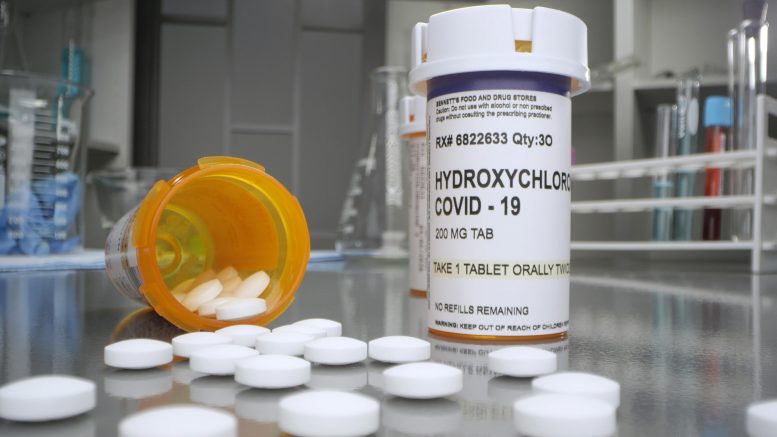
The clinical trial found no difference in COVID-19 infection rates among healthcare workers who took hydroxychloroquine compared to those on a placebo.
Front-line health workers had similar infection rates whether they took a daily regimen of hydroxychloroquine or not.
In a clinical trial testing whether a daily regimen of hydroxychloroquine could protect those most likely to be exposed to COVID-19, researchers from the Perelman School of Medicine at the University of Pennsylvania found there was no difference in infection rates among health care workers who took the drug versus those taking a placebo. While the researchers observed a lack of effect associated with hydroxychloroquine, infection levels were low among the participants, which the researchers believe points to the effectiveness of other prevention measures in the health system: social distancing, use of personal protective equipment, and proper hand hygiene. The study was published recently in JAMA Internal Medicine.
“This work represents the first randomized trial of hydroxychloroquine’s prophylactic effect for those not yet exposed to COVID-19,” said the study’s lead author, Benjamin Abella, MD, MPhil, a professor of Emergency Medicine and the director of Penn Medicine’s Center for Resuscitation Science. “And while hydroxychloroquine is an effective drug for the treatment of diseases like lupus and malaria, we saw no differences that would lead us to recommend prescribing it as a preventive medication for COVID-19 in front-line workers.”
Due to the novel nature of COVID-19, the science and medical communities have had to rapidly assess treatment and prevention measures. One drug that has been considered as a potential preventive solution was hydroxychloroquine, based on laboratory studies that it could prevent SARS-CoV-2, the virus that causes COVID-19, from entering cells in tissue culture.
As such, Abella, along with the study’s senior author Ravi Amaravadi, MD, an associate professor of Medicine in Hematology-Oncology and the program co-Leader of Cancer Therapeutics at the Abramson Cancer Center, and their co-authors set out to rigorously test whether taking a substantial dose of hydroxychloroquine — 600 milligrams daily for two months — would have an effect on infection rates. They conducted this study among hospital workers that regularly came into contact with COVID-19 patients.
The researchers were able to analyze a pool of 125 physicians, nurses, certified nursing assistants, emergency technicians, and respiratory therapists that they recruited for the study. This population worked in several different areas of the two University hospitals, including the emergency departments and COVID-19 units. Roughly half of the participants in the study took hydroxychloroquine while the other half took a matching placebo (a cellulose pill). The study was double-blinded, meaning neither the researchers, nor the participants knew which drug they were assigned.
Extensive testing was used to rigorously prove who did or did not contract the virus. Each person received swab and antibody testing for COVID-19 at the start of their participation in the study, halfway through, and at the end–an eight-week span during the study period that began April 9 and ended July 14, 2020. Participants also had electrocardiogram (ECG) tests because of concerns about hydroxychloroquine causing heart rhythm problems in severe cases of COVID-19.
“To really test the potential of HCQ as a prevention drug, we felt it was key to recruit health care workers with many hours of direct physical exposure to COVID-19 patients, then randomize them in a double-blind manner between hydroxychloroquine or a matching placebo, and treat them for a long period of time,” said Amaravadi. “Through that whole time, we monitored participants closely for their safety.”
At the end of the study, 6.3 percent of those who took the hydroxychloroquine had tested positive for COVID-19 while 6.6 percent of those who took the placebos were positive. None required hospitalization. Additionally, there was no difference detected in the heart rhythms between those in either arm of the study, which showed that while the drug had no preventive effect, it was also not detrimental, outside of some temporary side effects like diarrhea for some.
“The differences we saw were negligible,” Amaravadi said. “And those who did get the virus, whether they were taking hydroxychloroquine or not, were all asymptomatic or had very mild forms of COVID-19.”
While the study was originally slated to recruit 200 health care workers, an analysis along the way showed that a continuation of enrollment would not yield different results. An independent data safety and monitoring board reviewed the findings and concurred.
These results will have an impact on the dozens of planned and ongoing clinical trials around the world that are testing hydroxychloroquine as a prevention for COVID-19 infection in health care workers. While a much larger study could potentially find a different result, the results of the Penn study suggest other forms of prevention, including vaccines, may be worth more attention.
Reference: “Efficacy and Safety of Hydroxychloroquine vs Placebo for Pre-exposure SARS-CoV-2 Prophylaxis Among Health Care Workers: A Randomized Clinical Trial” by Benjamin S. Abella, MD, MPhil; Eliana L. Jolkovsky, BA; Barbara T. Biney, MPH; Julie E. Uspal, MD; Matthew C. Hyman, MD, PhD; Ian Frank, MD; Scott E. Hensley, PhD; Saar Gill, MD, PhD; Dan T. Vogl, MD, MSCE; Ivan Maillard, MD, PhD; Daria V. Babushok, MD; Alexander C. Huang, MD, PhD; Sunita D. Nasta, MD; Jennifer C. Walsh; E. Paul Wiletyo, PhD; Phyllis A. Gimotty, PhD; Michael C. Milone, MD, PhD; Ravi K. Amaravadi, MD; and the Prevention and Treatment of COVID-19 With Hydroxychloroquine (PATCH) Investigators, 30 September 2020, JAMA Internal Medicine.
DOI:
Funding for this study came through a philanthropic donation from Leonard and Madlyn Abramson and Mark and Cecilia Vonderheide. Sandoz, a division of Novartis provided the hydroxychloroquine. PCR testing was supported by Quest Diagnostics.
Other Penn authors on this study included Eliana L. Jolkovsky; Barbara T. Biney; Julie E. Uspal, MD; Matthew C. Hyman, MD, PhD; Ian Frank, MD; Scott E. Hensley, PhD; Saar Gill, MD, PhD; Dan T. Vogl, MD; Ivan Maillard, MD, PhD; Daria V. Babushok, MD; Alexander C. Huang, MD, PhD; Sunita D. Nasta, MD; Jennifer C. Walsh; E. Paul Wiletyo, PhD; Phyllis A. Gimotty, PhD; Michael C. Milone, MD, PhD; Shaun K. McGovern; Edith M. Teng; Niraj J. Vyas; Steve Balian, MD; Jonathan A. Kolansky; Abby R. Dolan; Kehinde O. Oyekanmi; Jaldhi S. Patel; Nabil M. Abdulhay; David R. Helfer; Isabelle S. Mullen; Charlotte F. Tisch; Sarah K. Fiordaliso; Rachel McFadden; Sigrid Gouma, PhD; Selene G. Nunez-Cruz, PhD; Olivia Doran; Paul L. Callahan; and Sarah Gamblin.

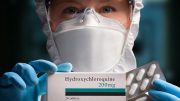
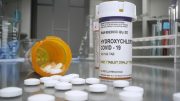
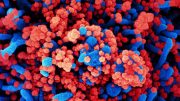
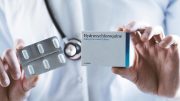
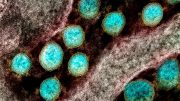
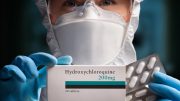
I didn’t see ZINC mentioned in the article. Do the authors understand why HCQ is helpful against COVID-19? That it’s the ability of HCQ to transport the ZINC into cells? I’m getting rather tired of these “HCQ doesn’t work” articles. Without ZINC, of course it doesn’t work. ZINC is the warhead, and HCQ is the ICBM. Without the warhead a nuclear missile is less effective.
I 100$ agree with you Richard, and your point was very succinctly put. As an engineer rather than a doctor, and being as far from a conspiracist as you can get, I got tired very early on of the media half-truths surrounding the subject of hydroxychloroquine, and so I devoted a great deal of my lockdown-time researching the matter. There is only one area where HCQ is effective, but it is a very important area, and in that area HCQ is extremely effective; it is namely with people who are at the highest level of risk of contracting Covid-19, those who are older, those with comorbidities, an awful word that really should be outlawed. All of the studies promulgated by the main stream media (MSM) have been performed, either too late, without zinc, with the wrong doses or with the wrong people. So, as regards the pseudo-scientific drivel we are being fed by the MSM, and also by many of our leaders and institutions, it appears that we are being treated like educationally subnormal baboons. Quo vadis? Unfortunately, I have not a clue now. We are in a mess, and it is not Covid 19.